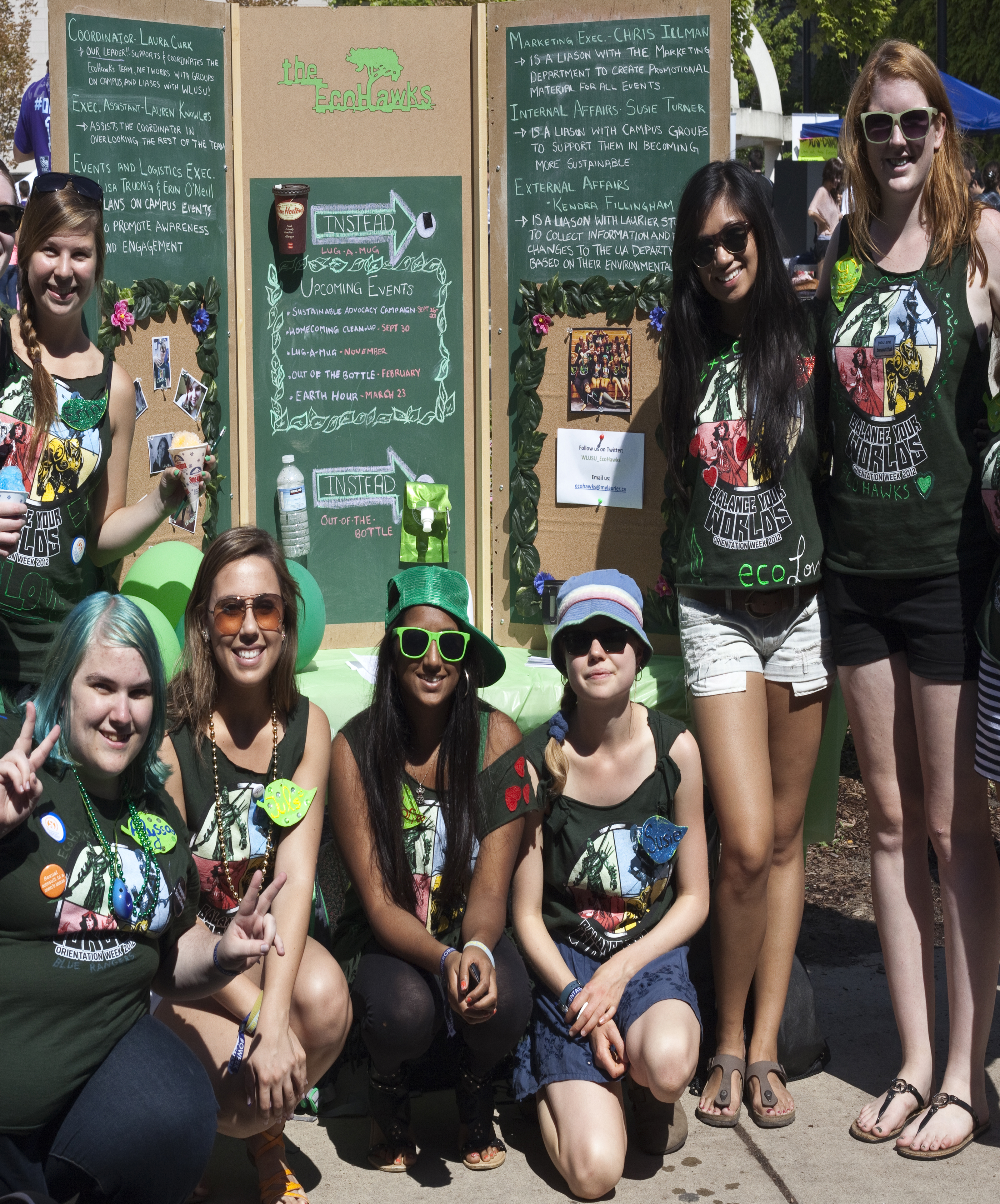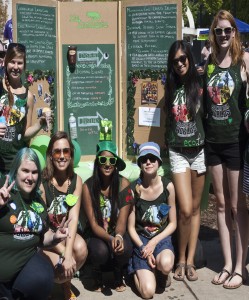New sustainability plans


Various groups on campus are trying to make sure that Wilfrid Laurier University’s campus stays green.
After the restructure of the Wilfrid Laurier University Students’ Union last April, the EcoHawks, a student-run sustainable group on campus, was shifted from being under the services department to the university affairs department which is led by Chris Walker.
According to Laura Curk, a fourth-year communications student and the co-ordinator of the EcoHawks, the new restructure will allow the group to promote more advocacy.
“I thought about our events and what we could do with them to have more of a research and advocacy feel for it. So that’s why I created the sustainable advocacy campaign,” she explained.
EcoHawks held an event in the Concourse during the last week of September for the sustainable advocacy campaign.
“It’s basically an opportunity for the EcoHawks to invite groups internal and external to the organization that have to do with sustainability and the environment,” she added about the campaign. As a result, EcoHawks have the ability to be a bit more interactive with the community and the university.
“The expectation is that the EcoHawks will maintain their campaign mentality,” explained Walker, the vice-president of university affairs at WLUSU. “However, the EcoHawks are also going to pick up the role of generating research and working with the university to ensure that they are employing environmental safe practises.”
With that research — which, according to Curk, will be done through various student surveys — the EcoHawks and WLUSU can go to the university to advocate on the behalf of the students to implement more sustainable practises.
Both Walker and Curk noted that in addition to their on-going co-operation with the sustainability office at Laurier, they are pushing for stronger relationships with sustainable groups in the community, one of which is with a new bike share program that is currently in the works in the Waterloo region.
“It’s the opportunity to pay for a bike and to bike somewhere else,” said Walker. “It’s an accessibility initiative as well as an environmental one.”
Claire Bennett, the co-ordinator of the sustainability office, noted that her office — which is now in it’s second year — is implementing other programs to ensure sustainable practises.
One of the new programs has been the installation of new recycling stations on campus.
“We also centralized waste centers in a bunch of different buildings. We have more individual recycling bins instead of multi-sort units … so recycling can all go into one bin,” she said.
“It goes through a facility in Cambridge [to be sorted] which is really close, it’s nice. Because a lot of the time different contractors will send it all the way to the States.”
Another one has been the creation of a new sustainability course which won’t necessarily be part of one particular faculty. This course will teach anyone, regardless of what program they are in, about environmental and sustainable initiatives and practises.
“It would be Laurier’s first course that wouldn’t actually ‘live’ anywhere, it will be interdisciplinary,” explained Bennett.
While she already believes that Laurier works effectively in terms of staying green, Curk believes there’s always room for improvement.
The challenge, however, has not been that people don’t want to be environmentally aware, it’s the fact that they just don’t have the opportunity yet — something that she hopes the EcoHawks will be able to give.
“The answers people have been giving us is that they are in support of environmental change, they just don’t really know how they are supposed go about doing it,” she added.

